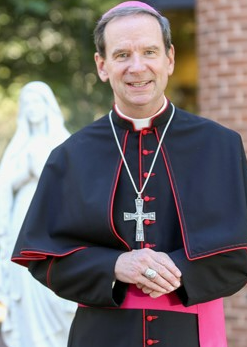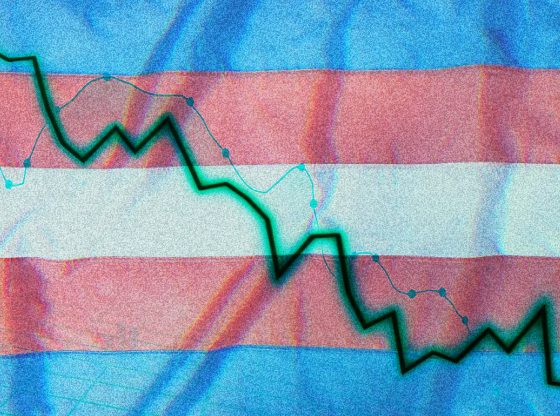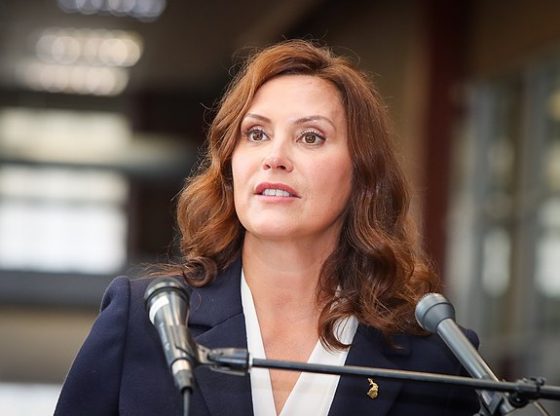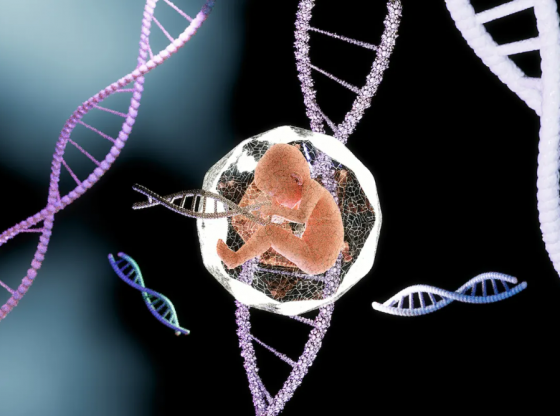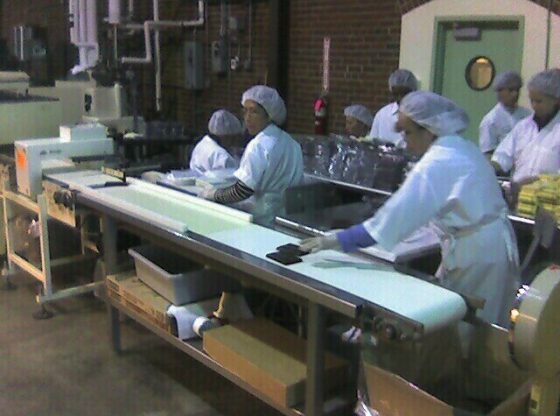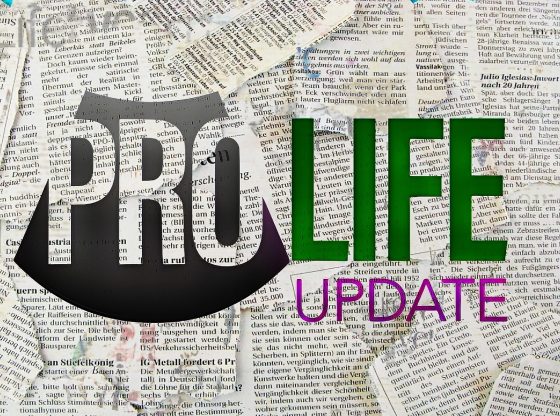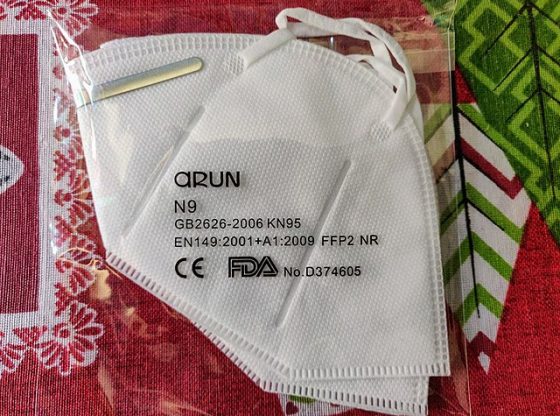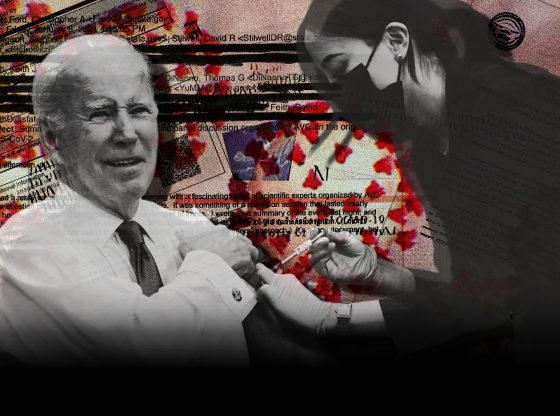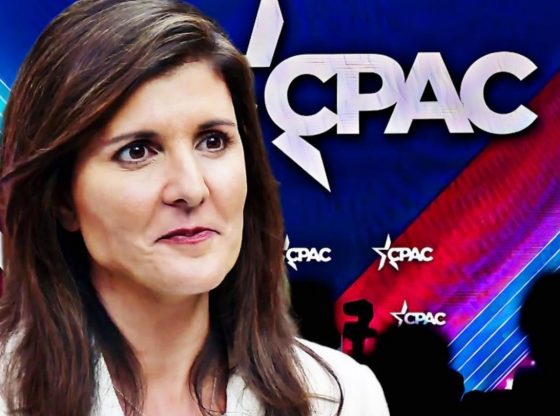Bishop Michael Burbidge of Arlington, Virginia, was elected on Nov. 16 to serve as chairman of the U.S. Conference of Catholic Bishops’ Committee on Pro-Life Activities, because its former chairman, Archbishop William Lori of Baltimore, was elected to serve instead as vice president of the conference.
Bishop Burbidge, 65, has served previously within the conference as chairman of the bishops’ Committee on Communication and has been vocal on pro-life issues in the past. He spoke with the National Catholic Register following his election about his vision for pro-life outreach and how to address the scandal of pro-abortion Catholic politicians.
The following is an interview conducted by the National Catholic Register.
In this post-Dobbs climate, what do you see as some priorities for the committee, and what do you foresee as some challenges?
The priorities will be the same: continuing the great work that Archbishop Lori, our new vice president of the conference, has done, consistent with advocacy, witnessing on behalf of human life, and also service on behalf of human life. While we celebrate the overturning of Roe v. Wade — it’s a great pro-life victory — I’m so mindful of those who, for all these years — many have gone home to God — but for many years prayed for that day when we would see that overturned. God used their patience, their perseverance, their witness in a miraculous way.
Our work is not any less because we know the focus is now changed to the states, and we have a lot of work to do in education, even among our own faithful, to know that this work of protecting life is at a very critical time, where we’re seeing laws in various states — referenda being proposed that are extreme, with no restrictions, and federal funding of abortion.
We have a lot of work to do to educate the faithful about what is going on, not only on the federal level, but on the state level, and then to inspire them to bring their faith into the public arena. And that’s by engaging their elected officials, peacefully witnessing in state marches on behalf of human life, and continuing our very pro-life initiatives and efforts of serving life. Mothers who are in crisis pregnancies or parents who are struggling with finances or the basic necessities for children, we’re here to help to serve, to walk with mothers and fathers. So all those things are our priorities now.
We have a president who describes himself as Catholic but advances legal abortion. What are your thoughts on addressing the confusion that causes?
We have to be continually clear on the teachings of our Catholic Church, and we can’t allow anyone, especially in the public arena, including elected officials, to serve as if they’re the teachers when they put themselves forward as a Catholic and act contrary, in complete opposition to what we have always held to be true and will always hold true.
We can’t change the Gospel: All of human life is from God as sacred and must be protected. We must continue to be very clear in our teachings and try to make sure that we do our part to prevent the faithful from being scandalized when people in any field publicly assert being a Catholic and then say something that’s completely contradictory of what it means to uphold the gospel of life. That’s something that we’re going to have to continue to do consistently.
Many politicians, following the overturning of Roe, have become more adamant in their pro-abortion efforts and still present themselves for Communion. How do the bishops address that?
That’s the role of a bishop; that’s the role of a teacher: to engage public officials who profess to be Catholic and then act contrarily. It’s our obligation to engage them and to speak with them and try our best to transform their hearts; and that means a willingness to meet with them, to dialogue with them, and also to encourage them to really be consistent in what we profess as a Catholic and to live that faith.
We can never tire of engaging. We never count out the power of the Lord and the Spirit of God to transform hearts.
Archbishop Lori outlined a vision of “radical solidarity” with moms in need, recognizing a belonging to one another on this issue. I wanted to ask you your thoughts on that vision.
Radical solidarity, that’s a great term, but it’s not just a term. It’s who we are, and it’s what we’re doing. I’ve been so inspired these last two days, and I hope our Catholic faithful know this. I think our Catholics will be so very proud of their Church and what we are doing as a conference of bishops and as dioceses and parishes across the country.
The last two days we heard, for example, reports from Catholic Charities USA and the countless number of people who have been assisted through Catholic Charities USA. We heard from CLINIC [Catholic Legal Immigration Network Inc.], which is helping provide legal representation to our brothers and sisters who are immigrants to our country. I had the great privilege of speaking on the National Catholic Partnership on Disability, to be referring to what we are doing to make sure people with intellectual, developmental, physical disabilities are fully engaged and included in our parishes and our schools and our faith-formation programs. We heard from the Ukrainian archbishop of what we have done as a Church in the United States to help people, our brothers and sisters in Ukraine, who are going through so much suffering. We heard from Catholic Relief Services on all that is going on to help people, brothers and sisters from around our world. So this solidarity is being lived out in extremely generous ways. Why? We’re pro-life, and we uplift the sacredness of life and the dignity of every human person.
We can only do this because the faithful are so generous to these important life ministries. But it’s who we are. It’s what we believe, and it’s consistent. It’s consistent from the very first moment of conception to natural death.
You see the pro-life issue as connected to other issues, correct?
Of course, absolutely. I’m the episcopal liaison for persons with disabilities, but that’s pro-life, right? And everything and every other person standing up there today and talking about the great ministry work: It’s pro-life. That’s who we are.
What are your thoughts on the violent protests, the vandalism of churches, the extreme anger and hostility in the wake of the overturning of Roe? How can pro-lifers respond to that?
It’s very unsettling when you know you are a target of anger and especially against that which is sacred, and we’ve seen that. It’s a very clear reminder of not only the division, but the hatred, that leads to violence that’s so present in our world. But at all times we’re Christians, and so we can only respond to acts of violence with a willingness to certainly not accept that — we can’t accept that, but not with more violence. When we see hatred, we have to match it with love; when we see confusion and division, we have to be peacemakers and unifiers.
So we radically live the Gospel when we denounce any form of targeting against people because of their religious beliefs and morally held convictions. We have to denounce that that’s unacceptable, but the way we respond to it is always with love, just as the Lord did himself.
What are your thoughts on engaging young people on the pro-life issue?
They all see in their own families, whether it’s a brother or a sister or another family member, the joy when a new family member comes into the family, a new child is born. We all rejoice in that because it’s one of the most beautiful gifts that God has given to us.
We have to educate that the attack on life is taking innocent lives and is now going to an extreme. I think that in their heart of hearts, so many of our young people, they don’t want to see the violence that comes to the child within the womb. I think we have to continue to educate on what is at stake here.
We want to make sure that every mother, every father knows that they’re never walking alone, that we’re walking with them. We don’t want them to be afraid. We want to be there for them; and if they’re having difficulties with finances, we want to be there to help them. If they need counseling, we want to be here to help them. If they can’t afford medical care, we want to be there to provide the medical care, so abortion does not have to be the answer — because that’s going to lead to more hurt in their lives and damage.
I think if you invite young people to help us, to say, “Help us to walk with parents so they don’t need to choose an abortion — be part of that effort,” I think we can do a better job of inviting our young adults to help to us give parents every reason to choose life and to make abortion unthinkable. I know when we invite our young adults to serve, they come forward. And when we can say, “Listen, you know so many lives are going to be saved if parents are assured that they’re going to have the care and the necessities, all they need. Why don’t we be part of that solution?”
I feel if we just increase our efforts of inviting, it could be part of the solution.

